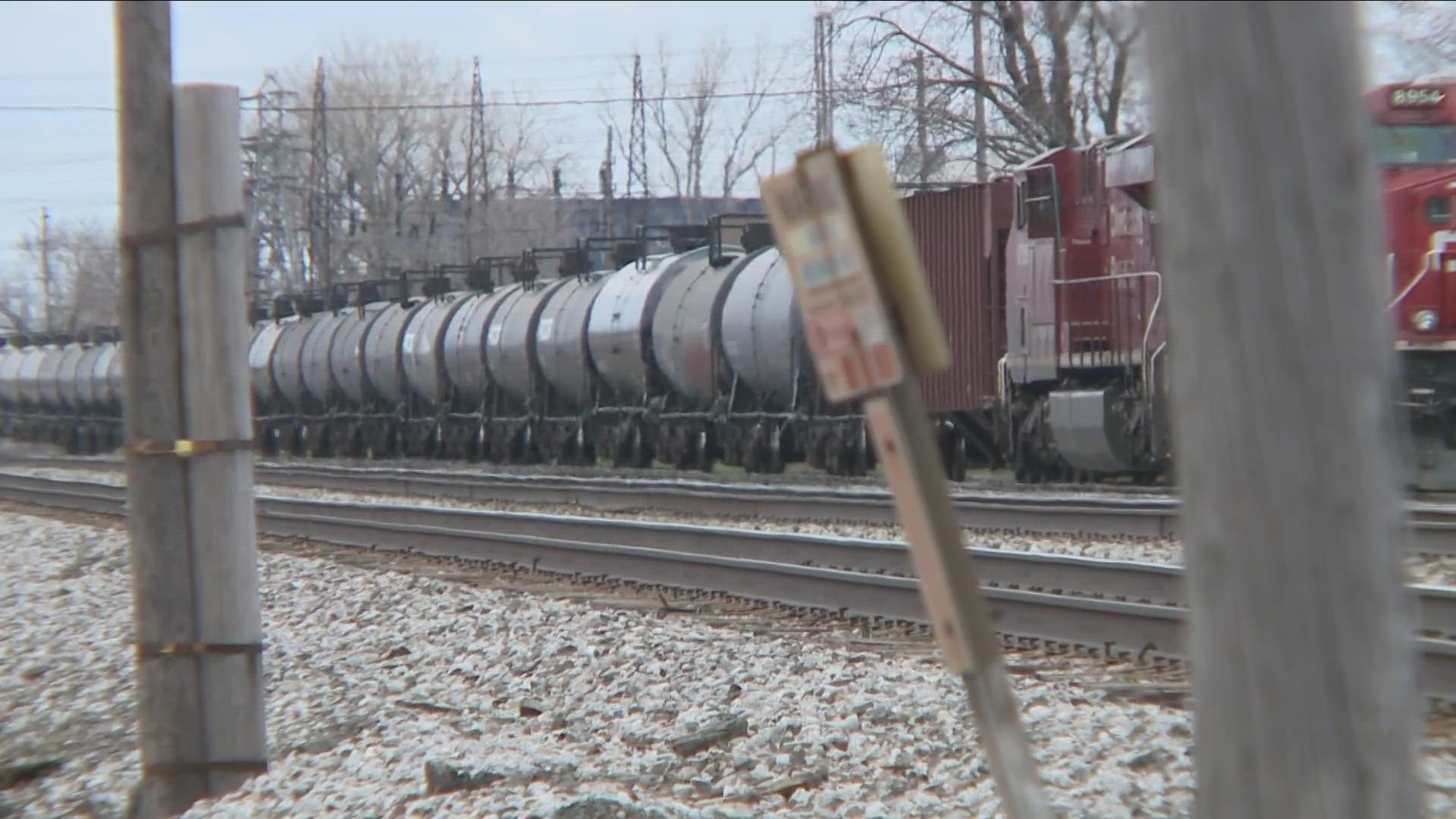HAMBURG, N.Y. — The train derailment and chemical spill in East Palestine, Ohio, is the focus of a lot of attention nationwide.
Freight trains and trucks carrying hazardous chemicals and very combustible materials, of course, also pass regularly through Western New York. 2 On Your Side looked into the local contingency planning for such incidents in this area and what more can be done.
If we think back to 2013 the subject was potentially explosive oil trains crossing through Western New York and elsewhere with politicians calling for more inspections and safety factors. The uproar grew after a Canadian incident with a runaway oil train in Quebec killed 47 people.
While there are no human deaths in Ohio, there are lingering concerns about chemicals and other materials transported here in Western New York. We saw a derailment in the center of the village of East Aurora in May of 2020.
The overall issue spurred some rail inspections, especially in areas like Cheektowaga and Buffalo where trains pass right near residential neighborhoods.
Also there was updated training provided by the railroads for local first responders.
And six years ago there was joint planning for all local communities with rail lines, according to Hamburg Emergency Services Manager Sean Crotty.
"We have a lot of industrial facilities in Erie County and we have a lot of chemicals up in Niagara Falls, and it's heavily industrial, and those cars run through our communities, so we want to make sure that we know and are prepared to respond to incidents involving rail cars," Crotty said.
The railroads, chemical industry, and government agencies put out for first responders detailed response plans on situations like whether to use water or foam on a chemical car fire or perhaps allow a controversial burn-off like what happened in Ohio. Of course, there are also air and water monitoring plans for any fumes or leaking liquids from such an incident.
But should there be more notice when what are deemed "HHFT," or high-hazard flammable trains — also called "bomb trains" by emergency managers — pass through a community? In 2019, the Federal Railway Administration and U.S. Pipelines and Hazardous Materials Safety Administration required such notice if the state or local authorities actually request to know.
Crotty added: "Especially to have the thought that, 'OK, this is something that we need these specialized resources for.' It would be nice to know what's coming through our area so we can focus our training around those items, those materials for our first responders."
Crotty said the 2016 major fire at a building on the old Bethlehem Steel plant site in Lackawanna showed how even first responders must take extra precautions with masks required for police officers directing traffic away from the fire location. They may also have to decontaminate or even replace costly equipment like self-contained breathing apparatus units in such cases as a derailment.
And then consider that low-level nuclear-contaminated soil and other radioactive wastes from the now decommissioned West Valley Demonstration project for nuclear plant fuels in Cattaraugus County are being shipped out by rail cars.
That started again in the summer of 2021 according to the Federal Department of Energy. It's being shipped to a disposal site in Utah.
That rail line operated by the Buffalo Pittsburgh railroad was upgraded and inspected with no problems reported so far with any of those shipments.
A spokesman for New York State Homeland Security says that the agency along with the New York State Department of Environmental Conservation is monitoring the Ohio derailment for any plume with potentially hazardous fallout but nothing has been detected so far in this state. They also have experts available if there was a derailment in New York state.

